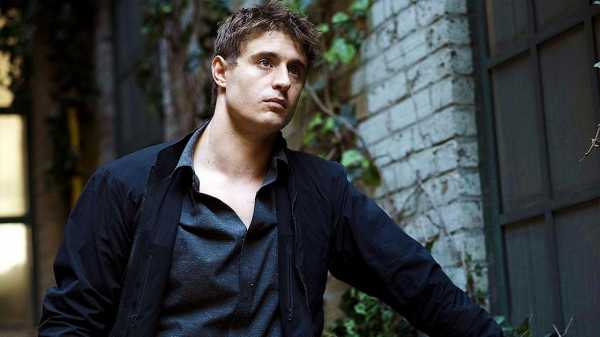
“Six Days of the Condor,” the 1974 novel by James Grady, was the basis for “Three Days of the Condor,” the 1975 film by Sydney Pollack, which, in turn, inspired the new series “Condor,” just “Condor” (airing Wednesdays, on Audience). The exact duration of the hero’s flight from a corrupt espionage establishment is left open-ended. Surely, the show’s creators, Todd Katzberg and Jason Smilovic, are keen to allow the possibility of multiple seasons of slow-drip suspense and queasy brooding about American power.
Last time around, Robert Redford played Joe Turner, a bookworm employed by the C.I.A. His office hidden in plain sight as the “American Literary Historical Society,” Turner pored over novels and newspapers from around the world in search of clues to fresh dirty tricks and resemblances to ongoing operations. Wearing an enviable herringbone-tweed jacket, Joe stepped out to grab lunch one day and returned to find his co-workers shot dead. On the run, he learned that his work threatened to expose a secret project, orchestrated by an in-house cabal, to seize control of Middle Eastern oil fields.
In the new “Condor,” Turner (Max Irons) is a millennial tech whiz with a tousled head of hair and a rumpled sense of idealism. Guided by the conviction that he could best serve his country by being a person of conscience within its selectively principled government, he writes code and analyzes data for “the C.I.A.’s version of Google X,” as a talking head says after this Turner’s colleagues have been shot dead and it’s all over the news.
Turner developed an algorithm to assess employees at probable terrorist targets abroad. Summoned to a command center in the first of this season’s ten episodes, he learns that the algorithm has trained surveilling eyes upon a Saudi-born American citizen who, on his way to work at a football stadium near Washington, D.C., made a detour to a secret post-office box. The Company is inclined to shoot first and ask questions later.
Why, exactly, has this underling been called in to a meeting at this level? “Condor” is unashamed to cut some corners to lubricate the machinery of its plot. Also in the room is his uncle and mentor, Bob Partridge (William Hurt), who briefly tolerates one of Joe’s many laments on civil liberties and international conflict.
When Redford’s Joe Turner is left out in the cold, he kidnaps Faye Dunaway’s Kathy Hale—a total stranger—and hides out in her apartment, in prelude to a love affair. In 2018, a leading man cannot just go around abducting love interests off the street. Leaving work with a bad taste in his mouth and a big rock in his gut, Joe first goes home to worry about his soul and about the republic, then hustles to keep a Tinder date with Kathy H. (Katherine Cunningham). Though he is late to meet her and distracted by the football game on the sports-bar TV, she nonetheless invites him to escort her to her door, in what may be a pertinent comment on the desperation of the Washington singles scene. Joe seeks shelter at Kathy’s place after the slaughter of his colleagues.
Chief among the challenges Joe faces when explaining himself to Kathy is recounting the early action of this densely plotted series without sounding like a lunatic. His office is marked for liquidation because it discovers evidence that the (thwarted) stadium attack is a false-flag operation planned for both geopolitical profit and financial gain. (The malefactors include a servant of the military-industrial complex, brilliantly played by Brendan Fraser, who speaks in an unnerving tense mutter; sometimes, when he talks on the phone, you cannot sort out whether he’s using a voice-alteration gizmo. Meanwhile, Bob Balaban, playing a C.I.A. chieftain, suggests a quiet hybrid of mole and weasel.) Joe escapes the hit because he’s out on the fire escape, sharing a cigarette with a pal. (I need to guess that the two are not vaping because a Juul could seem pandering to younger viewers and confusing to their elders.)
The Joe-and-Kathy relationship in the show is an improvement on the film’s, in both plausibility and tone. As Karen Sisco says in “Out of Sight,” unimpressed by the Redford-Dunaway version, “I never thought it made sense, though, the way they got together so quick.” Here, Kathy’s suspicion of Joe melts away slowly, and even he is skeptical when it does, asking, “Have you considered that you might have some form of Stockholm syndrome?” They don’t “get together,” in the Biblical sense; her leap of faith that he is on the level is the sum and summit of their romance. “Condor,” rewiring the anxieties of classic paranoid thrillers for contemporary nervous systems, presents every citizen’s sense of isolation as the product of a state overrun with double-dealing. Trust is a precious commodity, and extending it is the truest form of love.
Sourse: newyorker.com






